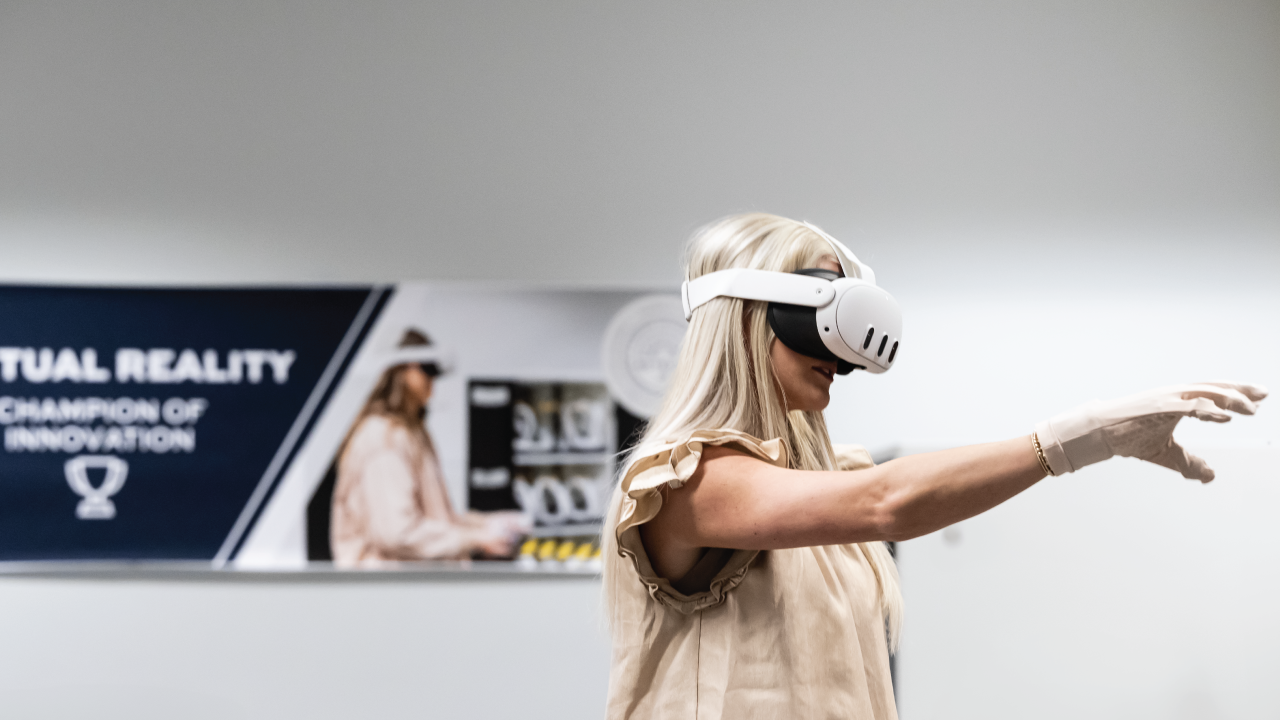content body

The Office of Information Technology and the Biggio Center are proud to announce that the AUX: Immersive Learning Experiences grant for 2025 has been awarded to 11 projects involving 19 Auburn faculty members, totaling $292,950.
These projects leverage innovative technologies, including augmented and virtual reality, to create transformative experiences for students, faculty and the broader community.
This year’s review committee received many outstanding proposals, making the selection process highly competitive. The awarded faculty members distinguished themselves through their creative approaches and the potential for significant impact in their fields.
Grant recipients are as follows:
Alecia Douglas (Horst Schulze School of Hospitality Management)
Expanding the Integration of Immersive Technology in Event Management Education
Contributing team: Ali Sattari (Creative Lead), Amy Conway (Instructional Designer), Mazin Salim Mohammed Palakuniyil (Instructional Designer)
Develops an immersive VR simulation platform for event management students, enabling hands-on experience in managing live events at Auburn venues, with a focus on branding, sponsorship, and logistics in realistic digital twin environments.
Amrut Sadachar (Consumer and Design Sciences)
Enhancing Textile Fundamentals through Immersive VR Modules
Contributing team: Ali Sattari (Creative Lead), Stanley Ross (Instructional Designer)
Creates WebVR teaching modules using 360° imagery from textile manufacturing facilities, allowing apparel students to virtually explore cotton yarn production and deepen their understanding of industry processes in core courses.
Anna-Margaret Goldman (University Outreach)
Rural Teachers Fellows Program – 360 Degree Student Teaching Evaluations
Contributing team: Jillian Ford (Co-PI, Agriscience Education), Ali Sattari (Creative Lead), Nikkiye Dzambazi (Instructional Designer)
Expands Auburn’s Rural Teacher Fellows program by integrating 360° video technology for remote supervision, improving access and feedback for student teachers in rural Alabama while fostering civic engagement and professional development.
Binita Mahato (Political Science)
Evaluating the Sustainability Score of AU Facilities through Digital Twins
Contributing team: Ali Sattari (Creative Lead), Megan Slatton (Instructional Designer)
Uses VR-based digital twins of campus buildings to teach and assess sustainability, integrating Auburn’s Sustainability Compass framework and real-time data visualization into course modules for hands-on, place-based learning.
Daniel Siao (School of Aviation)
Expanding the Integration of Immersive Technology in the School of Aviation
Contributing team: Martin (Huey) Harris (Co-PI, Aviation), Rebecca Baughman (Co-PI, Aviation)
Integrates off-the-shelf VR solutions into aviation courses and flight training, enhancing student proficiency and reducing training time through immersive, hands-on experiences with aircraft systems and procedures.
Eilís Finnegan (College of Architecture, Design and Construction)
Expanding the Immersive Architecture Lab – Phase 2
Contributing team: Frank Hu (Co-PI, Landscape Architecture), Jennifer Pindyck (Co-I, Architecture), Expands the Immersive Architecture Lab by integrating VR/AR with digital-physical fabrication tools, enabling students to create and test “phygital” models that bridge virtual and tangible environments in design education.
Felicia Tuggle (Sociology, Anthropology and Social Work)
Expanding Access to Interprofessional Education through Extended Reality
Contributing team: Jeanna Sewell (Harrison College of Pharmacy), Rachel Helms Cody (College of Nursing), Ali Sattari (Creative Lead), Sydney Bassett (Instructional Designer)
Develops XR-based interprofessional education modules for social work, nursing, and pharmacy students, enabling immersive, collaborative practice simulations that build teamwork and real-world clinical skills.
Jake Elbrecht (McWhorter School of Building Science)
Exploring Analog and Digital Pedagogy for Mass Timber Installation Training
Contributing team: Ali Sattari (Creative Lead), Jasmine Jones (Instructional Designer)
Creates a VR-based training experience for mass timber installation, allowing students to safely practice construction techniques and sequencing in a simulated environment, enhancing workforce readiness.
Jia Wu (Consumer and Design Sciences)
Expanding the Integration of Immersive VR Technology in Fashion Design
Contributing team: Young-A Lee (Co-PI), Ali Sattari (Creative Lead), Betsy Gilbertson (Instructional Designer), Mazin Salim Mohammed Palakuniyil (Instructional Designer)
Integrates VR technology into apparel design courses, culminating in a virtual fashion show at the annual CADS Fashion Event, where students present 3D collections in immersive runway environments.
Maria Delgado Deleon (Consumer and Design Sciences) and Veena Chattaraman (Consumer and Design Sciences)
Transforming Spatial Perception in Interior Design with Extended Reality
Contributing team: Ali Sattari (Creative Lead), Christina Ganus (Instructional Designer)
Develops XR modules to enhance spatial perception and decision-making in interior design education, supporting improved visualization, material selection, and accessibility in alignment with accreditation standards.
Suhasini Gururaja (Aerospace Engineering)
Build, Break, Learn: Immersive Aerospace Materials and Structures
Contributing team: Russell Mailen (Co-PI), Pharindra Pathak (Aerospace Engineering), Ali Sattari (Creative Lead), Erica Britton (Instructional Designer)
Creates immersive AR/VR modules for aerospace engineering students, including 3D visualization of aircraft components and a virtual materials testing lab, to deepen understanding of structures and materials through interactive simulations.
We congratulate each awardee and thank all faculty who applied for their commitment to innovation in teaching and learning. To learn more about previous and current AUX grant projects, please visit the AUX grant website.
Submitted by: kmp0025@auburn.edu




